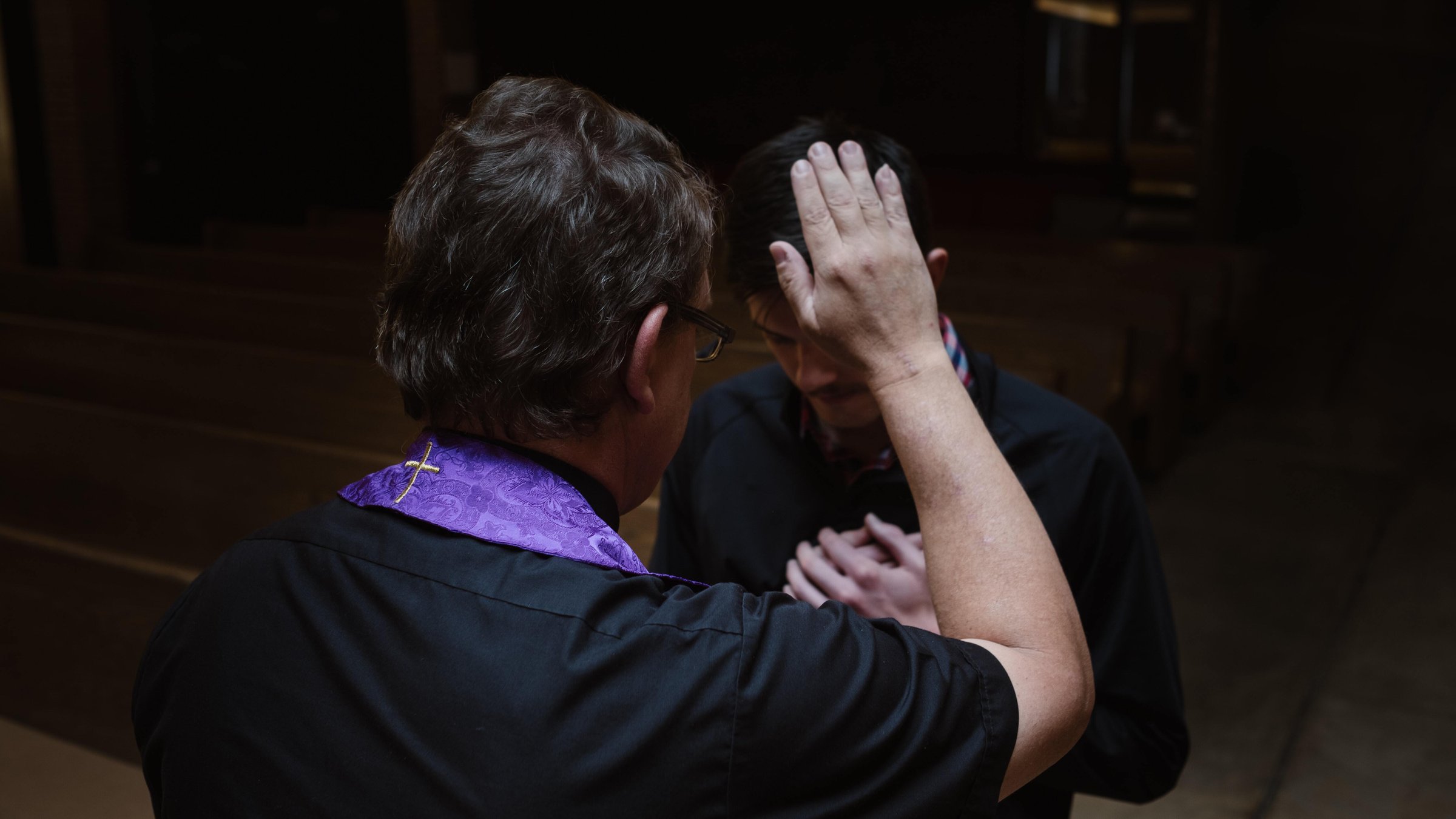A Protestant student recently asked me, “Wouldn’t it be more intimate to tell one’s sins directly to God, rather than going to confession and having the priest there as intermediary?” We had studied confession the week before, and, in this lecture, I had discussed prayer and how moving it must have been for the Apostles to witness Christ Himself at prayer, in intimate dialogue with His Father.
Pondering her question, I realized, as if for the first time, the incredible tenderness of the God who chooses to come to us in the sacraments. No: it would not be more intimate simply to tell my sins to God in the silence of my heart. Where heaven touches earth, where the invisible, inaudible God touches my heart, is in the words of absolution. I hear God Himself tell me what I most long to hear, “Your sins are forgiven. Go in peace.” God loves me so much that, despite my sins, in fact, in my very act of confessing that sinfulness, He chooses to speak with a voice that my ears can hear. He said it in Galilee, in Jerusalem, in the towns and in the country, and He says it once again, to me: “Your sins are forgiven.”
This is the scandalous, the awe-inspiring mystery of Christmas. God does not remain a bodiless, distant reality but inserts Himself directly into the messiness of our world. Right there is where He wants us to look for and to find Him.
His Incarnation continues in the priestly ministry of the sacraments. Into the hospital room or the living room, it is He who comes with oil and with words to anoint the sick or the elderly, to strengthen them with His healing hands. Into the tiredness of a 4:50 a.m. rising, He comes with His Eucharistic presence, to provide nourishment and stability.
Let us, this Christmas season, approach with the humility of the Wise Men and the shepherds. Let us accept the gift that God wants to give us, as He wants to give it. Did they expect an infant? In a manger? Attended only by a young mother and father? And yet, there He was. And the sight, silent and simple, was more remarkable than all the Wise Men’s calculations, more magnificent than all the singing heavenly angels. So they gave glory to God.
Simple, too, is the confessional; simple, too, is the little white Host. Yet, there He is, and we and those we bring to the sacraments this Christmas will also give glory to God.
Sr. Maria Veritas Marks is a member of the Ann Arbor-based Dominican Sisters of Mary, Mother of the Eucharist.












